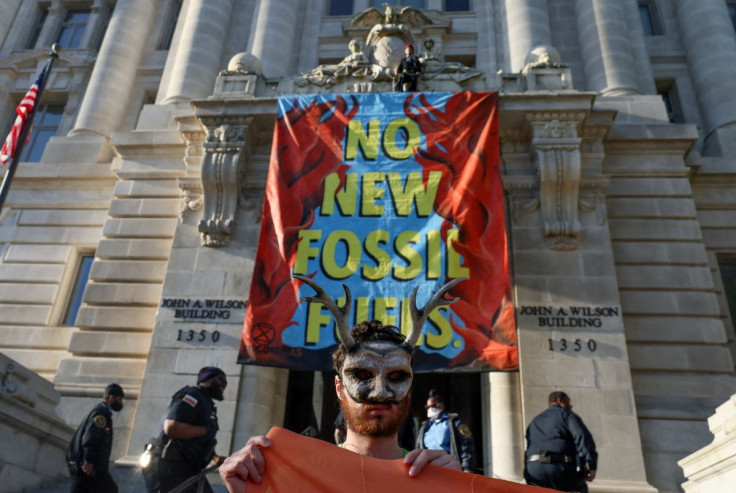Climate Change News: Crisis Means Increased Risk Of A Future Pandemic, Study Reveals
A study released Thursday revealed that climate change and future pandemics are inextricably linked and that global warming will increase the likelihood of future deadly pandemics.
The study, “Climate change increases cross-species viral transmission risk,” also called the "Iceberg study," created a simulation that shows the past, present, and future travels of 3,139 mammal species from now until 2070 and the influence of global warming. The simulation predicts the likelihood of a viral exchange occurring between animal species and humans.
Estimates from the report conclude that around 10,000 viruses capable of infecting humans are circulating among wild animals and are increasingly likely to turn into a human pandemic. Basically, as the climate crisis worsens, it heightens the risk of a future global pandemic.
“Our findings suggest that climate change could easily become the dominant anthropogenic force in viral cross-species transmission, which will undoubtedly have a downstream impact on human health and pandemic risk,” the study concluded.
As the climate crisis worsens, risks grow for the world’s island nations and coastal areas becoming uninhabitable because of rising sea levels along with increased wildfires, floods, and droughts. With the creation of new climate refugees, these people will need to encroach on animal habitats in order to survive.
Still, human encroachment on new wild animal habitats is not only a result of climate change. It also happens as a result of deforestation, clearing land, development, farming, and many more ways humans enter new wild spaces.
That simultaneous migration of humans and animals happens as habitats are destroyed for human consumption. This migration creates greater opportunities for human-animal and domesticated-wild or wild-wild animal species interaction that mutates viruses into a deadly pandemic.
Human encroachment onto new wild areas is the predominant theory for how the COVID-19 pandemic emerged in China. However, at this point, there is no way to mitigate the risk of another global pandemic.
The report warns that even mitigating the effects of the climate crisis and global warming will not halt or slow this phenomenon, it is going to be something the world has to deal with.
Even if the world somehow comes together to keep the global average temperature from rising by 1.5 to 2 degrees Celsius, or around 34.7 to 35.6 degrees Fahrenheit, “holding warming under 2 °C within the century will not reduce future viral sharing,” the study revealed.
A fight to prevent these viruses from reaching pandemic levels is something that those who worked on the study are now pushing for, with one of the lead co-authors of the study expected to meet with Congress to discuss the findings.
“It could cost at least a billion dollars to comprehensively identify and counteract zoonotic threats before they spread from wildlife reservoirs into [the] human population,” the study estimated.

© Copyright IBTimes 2024. All rights reserved.





















